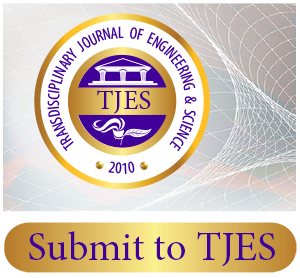Experimental Investigation of Al2O3 Nanofluid for Thermal Energy Management of Microchannel Heat Sink
Abstract
Energy is one of the primary foundations supporting evolutionary changes. Heat transfer is improved by increasing the surface area density and/or changing the base fluid characteristics. Because of its small size and improved heat transfer properties, nanofluid cooled microchannel heat sinks (MCHS) have lately become a popular choice for electronics and thermal applications. The influence of employing nanofluids for cooling a chip was investigated experimentally in this work to evaluate the heat transfer characteristics. The investigations were carried out in order to confirm the influence of nanofluid concentration and wall temperature upon thermal-hydraulic properties of the microchannel heat sink. In present study, Al2O3 water nanofluid was employed, with 0.1, 0.2, 0.3, 0.4, and 0.5% nanoparticle volume fractions, mass flow rate (MFL) 2, 5, and 8 m/s at 25, 30 and 35oC inlet tempreture. The resulting experimental findings was verified from results obtained by other researchers, which showed important correlation. The heat transfer efficacy of electronics cooling systems has been enhanced by the nanofluid technology and the configuration of the rectangular heat sink.


